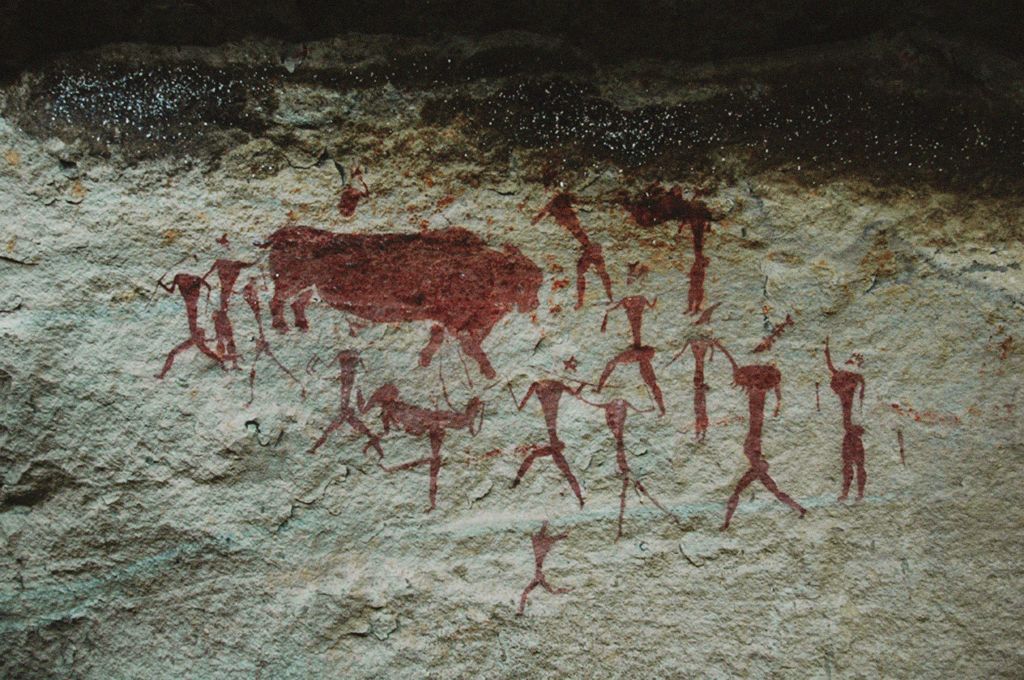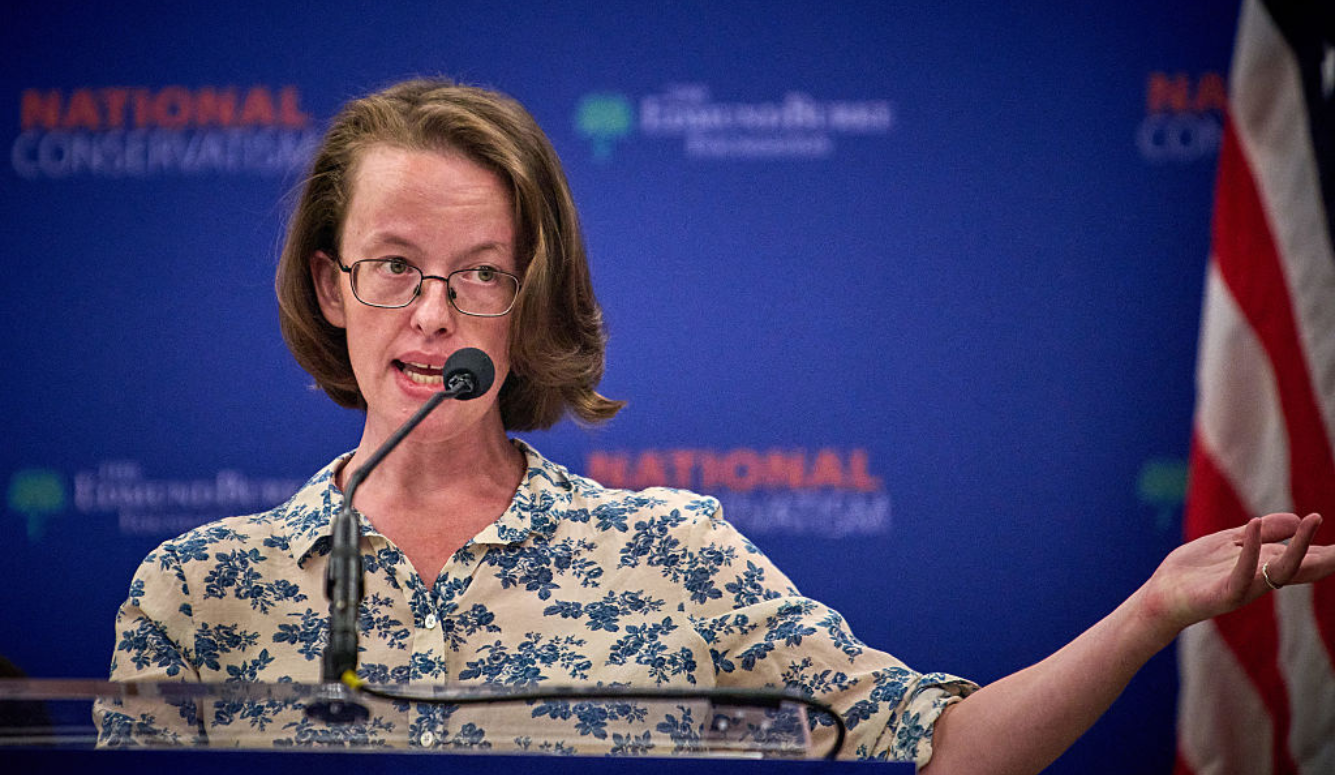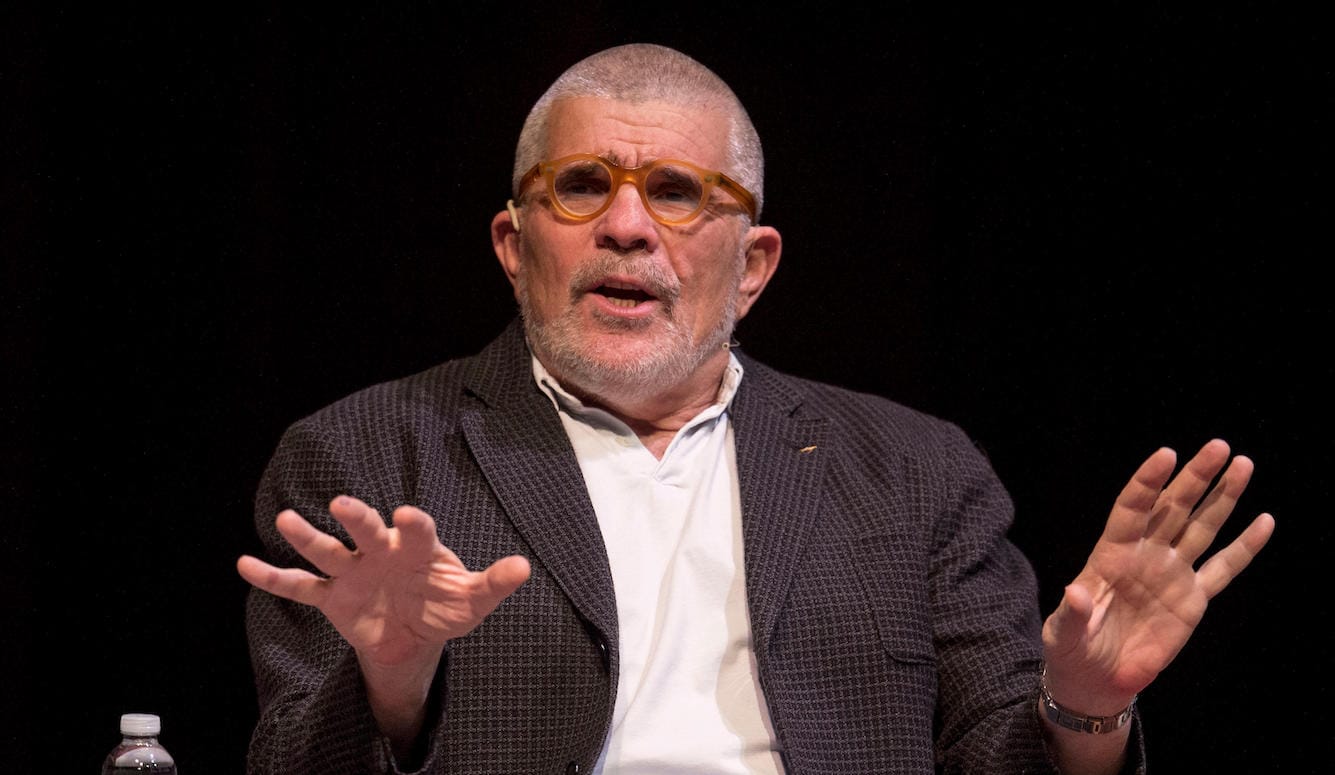Politics
The Costs and Benefits of Tribalism—A Roundtable

Editor's note: Quillette asked four scholars to reflect and comment on the costs and benefits of tribalism. They each have a background in academic psychology and include Chris Ferguson, Professor of Psychology at Stetson University, Cory Clark, behavioural scientist, Bo Winegard, essayist and PhD in social psychology, and Allen Buchanan, Professor at University of Arizona and author of The Evolution of Moral Progress: a Biocultural Theory (co-authored with Russell Powell) and Our Moral Fate: Evolution and the Escape From Tribalism.
What follows is a discussion of the human tendency to form groups, and how this tendency produces both great achievements, as well as extreme danger.
I. Tribalism is ineradicable
Chris Ferguson is a Professor of Psychology at Stetson University and author of How Madness Shaped History, Moral Combat: Why the War on Violent Video Games is Wrong, and Suicide Kings. You can follow him on Twitter @CJFerguson1111.
Looking at contemporary politics and culture in the West, it seems evident that tribalism is bad. It turns neighbor against neighbor, it results in discourse that is shrill and sanctimonious, it reduces bipartisan problem-solving, and it thwarts free speech and due process. But if we’re to understand how tribalism is hurting us in the modern era, we must understand the advantages it conferred in our evolutionary past.
Human tribalism dates back to when small groups of hominids were the norm, ending with the advent of complex societies a few thousand years ago. What evidence we have suggests that violence among early humans was high. Indeed, the reductions in violence we have experienced in modern industrialized societies are likely the result of efficient policing, so long as it is not corrupt and procedurally fair. Chimpanzees, our closest genetic relative, experience high rates of both intra- and intergroup violence, suggesting that these behavioral traits can be traced back to a common ancestor millions of years ago. As with humans, chimpanzee violence appears to be related to status-seeking, particularly among males, and to competition for resources and territory between groups.
In such an environment, adherence to one’s own group norms and beliefs, and suspicion of those adhered to by other tribes, was an evolutionary advantage. With the development of static agricultural societies, these tribes became larger, and this state of affairs persisted until the latter half of the 20th century when an emphasis on globalization emerged after the Cold War. Nonetheless, suspicion of strangers and a preference for familiarity (the tribe) was a behavioral advantage for most of human evolution.
The disadvantages of tribalism in the modern industrial world are not difficult to identify. Tribalism can lead to brutal wars of conquest; unnecessary wars caused by mutual suspicion; racism and ethnocentrism; as well as disregard for different social classes. At our moral best, we strive to rise above the tribalism of our evolutionary past and embrace universalism—an understanding that we are one big tribe and that, by working together in the interests of humankind, we can achieve far more than working against one another.
Unfortunately, the dominant threads of recent politics are inherently tribal. On the far-Right, politicians too often lean into racism and xenophobia, nationalism, and violence. They characterize their political rivals as quasi-communists or out-of-touch elitist globalists. This can stoke the kind of intranational paranoia that led to events such as the January 6th, 2021, riot at the US Capitol. We even see some pundits on the far-Right express admiration for dictatorial autocrats such as Vladimir Putin because he is a nationalist who shares their hostility to globalism.
Yet the far-Left indulges the same tribal instincts. Rather than embrace universalism, they embrace the particularism and identitarianism of fashionable ideologies like intersectionality to create a hierarchy of good and evil based on perceptions of victimhood. The far-Left has adopted a myopic (and privileged) obsession with the alleged wickedness of the West that admits no acknowledgement of its achievements or progress. And, like the far-Right, they have turned away from free speech and due process.
The problem with both of these dominant ideologies is similar: both promote rather than discourage tribalism by dividing citizens into warring camps. Though often couched in moralizing language popular with their core audience, both worldviews are aggressively discriminatory, racist, classist, and ethnocentric. Neither side is especially interested in core values unless they are expedient, and each is often guilty of precisely the sins of which they accuse the other.
Both ideologies foster tribalism among groups rather than encouraging them to see themselves as members of the same tribe, albeit with differing ideas on policy or politics. Tribalism, when calibrated toward actual inclusivity (not the false kind sloganeered by the far-Left) can be positive and produce worthwhile outcomes tackling real challenges facing the group. But pitting citizens against each other on the basis of race, class, gender, or political affiliation creates internecine conflict, the only victors of which are those who profit from fear and hatred.
Nevertheless, the prevalence of Manichean narratives in literature, the arts, role-playing-games, and so on, indicates that tribalism is here to stay. So, how are we to harness tribalism toward the good?
We can each take small steps to disengage from ruinous and fruitless political fights, and shun pundits and politicians who portray their opponents as evil. We should clarify that all citizens (of our nation and, perhaps one day, the human species) are on the same team and must work together to combat common threats such as climate change, poverty, or mental health crises.
We also need to recalibrate our teaching of history so that we recognize the failings of our past while also recognizing the remarkable progress which has brought historically unprecedented levels of democracy, humanism, and social progress to the world. The jingoism of the past has been overcorrected with nihilism in the present, and neither view provides an honest assessment of our history. We can understand past failings while taking pride in our exceptional successes.
Tribalism is here to stay. But, harnessed cleverly, it can be directed toward prosocial goals rather than turned inward against ourselves.
II. Tribalism is a double-edged sword
Cory Clark is Director of the Adversarial Collaboration Project and a behavioral scientist at University of Pennsylvania. You can follow her on Twitter @ImHardcory.
Tribalism—or the natural human tendency to distinguish ingroup from outgroup and give preferential treatment to the former—contributes to some of our most destructive and regressive human behaviors. Many of the worst atrocities in human history can be attributed in part to tribalism. Violent conflicts between groups can lead to both sides feeling victimized, and therefore justified in escalating mutually ruinous violence.
Those of us who have never directly experienced violent intergroup conflict still display a variety of group-based biases and double standards. People support rights and freedoms more for ingroup members than outgroup members; we are less trusting and cooperative toward outgroup than ingroup members; we hold our ingroups and outgroups to different moral standards; we aim to conceal the bad behavior of ingroup members; we overestimate how homogeneous and extreme outgroups members are, and denigrate them. Because people desire reliable signals of group loyalty, they often gravitate toward extremists at the expense of their more moderate (and often more level-headed) peers, increasing polarization and giving more social power to the most rigid and intolerant among us.
Tribalism can also undermine sound reasoning as people skillfully avoid information that could challenge their ingroup beliefs and axioms, and hold epistemic double standards in their evaluations of new information. Identity interests among scientists contribute to the proliferation of contradictory conclusions. These disagreements often devolve into uncivil and unproductive debates in the scientific literature, in which our most educated intellectuals make moral accusations rather than working to understand why disagreements persist and to resolve disputes. Policymakers then struggle to navigate the complex evidence, wasting valuable time and resources on failed interventions. And contradictions fuel disagreements among journalists and politicians, further dividing society as different groups arrive at divergent views of empirical reality.
This all sounds bad. But tribalism (and tribalistic tendencies such as loyalty and conformity) may be essential for facilitating cooperation and coordination in large and complex social groups comprising unrelated strangers. Groups which share languages, norms, values, goals, and beliefs can more effectively coordinate to the benefit of all group members. And signaling these characteristics to others helps individuals sort into cooperative and productive groups. Identification with an ingroup can facilitate cooperation within that group and creating a common ingroup identity between groups may reduce intergroup conflict.
Many collective activities of shared identity inspire awe and elation—the holiday seasons when community members decorate their homes and sing familiar songs, collective chanting in religious groups or cheering at sporting events, flash mobs, the time 65,000 Green Day fans sang Bohemian Rhapsody in unison or Canadian hockey fans sang the US national anthem in a charming display of outgroup cooperation. Such experiences can create a profound sense of meaning and transcendence that inspires prosociality and self-sacrifice. Tribalism thus creates some of the most elevated and significant feelings people can experience, and these positive feelings can result in altruistic acts that further benefit fellow group members.
Tribalism brings out the best and worst in humans. We may want to discourage it in contexts where there are risks of intergroup conflict and encourage it in contexts where it facilitates ingroup or intergroup cooperation. The challenges are to accurately distinguish these contexts and to discover effective interventions for channeling tribalism for collective benefit rather than mutual destruction.
III. Tribalism is a net good
Bo Winegard is an essayist and holds a PhD in Social Psychology. You can follow him on Twitter @Epoe187.
Many intellectuals worry about the potential mismatch between a brain designed for interaction among a few hundred relatively homogenous people and modern societies, which are full of cultural and racial diversity. They therefore condemn tribalism for contributing to many contemporary ailments, from bigotry and racism to dogmatism and ideological biases. These concerns are not unreasonable, for tribalism can be a force for great evil. But so can love. So can hope. So can optimism. And we do not condemn these things simply because they can in certain contexts lead to harm or even catastrophe. Just as the terrible crimes of wounded or jealous lovers should not lead to a blanket condemnation of love, nor should the crimes of bigoted or rapacious tribes lead to a wholesale rejection of tribalism.
On balance, we should applaud tribalism not condemn it. It is the solution to a fundamental dilemma faced by any social animal: How to distinguish cooperators from exploiters. At bottom, tribalism is simply a division of the social world into ingroup and outgroup with a concomitant preference for the ingroup. We tend, when we discuss tribalism, to think of potentially pernicious instances: countries battling for prestige, gangs fighting for territory, political ideologues promoting hatred of opponents. But there are many wholesome and even inspiring instances of tribalism: Church communities working together to feed the poor, husbands and wives doting on each other, cousins helping each other through financial hardships. And without the tendency to make this distinction between ingroup and outgroup, human sociality could not arise.
Cooperation is perilous because others can always cheat, steal, and manipulate. Imagine, for example, that three people start a business together. Each has full access to all the company’s resources. Even though all three want the company to succeed, it is also in everyone’s interest to skim a little. Although this is a constant threat, tribalism is a partial solution. Those who cheat and exploit are chastised (or worse) and become part of an untrustworthy outgroup—we no longer preferentially cooperate with them—while those who cooperate become part of the trustworthy ingroup.
Humans without tribal propensities would be endlessly exploited. They would have no preferences (or loyalty) for family or community or political coalition and would therefore not distinguish between allies and potential rivals. A kind of universal love may sound appealing, but like communism or other utopian ideas, it is either empty rhetoric or a dangerous delusion. And though a person who practiced it might, in the abstract, appear admirable, he would be a terrible social partner, since good social partners (good husbands, good brothers, good parents, good friends, good political allies) are reliable precisely because they are not impartial with their love, affection, time, and energy. Social partners are dependable because they are tribal.
Therefore, our social lives are part of an expanding set of tribes: nuclear family, extended family, local community, country, religious group, et cetera. These not only facilitate cooperation and protection from exploitation, but they also create meaning and identity. They shape our characters; they guide our behaviors, and they generate a web of obligations and expectations.
An opponent of tribalism might concede most of the above but note that although tribalism was once important for human sociality, it is unnecessary and unhelpful today, like a vestigial organ that causes more problems than it is worth. We solve the problem posed by the business example I offered above with the criminal justice system. We therefore do not need to rely on parochial preferences or nepotism; instead, we can cooperate with complete strangers because we have impartial rules and procedures. According to some scholars, the West’s unique power and prosperity are largely a result of transcending tribalism, of eschewing the localism of blood and soil, and expanding sociality by relying upon more abstract principles of reciprocity and fairness.
This is largely correct, but it’s important to draw the correct lesson. Tribalism, as noted earlier, can be harmful, and not all forms of tribalism are healthy. Social groups that are highly nepotistic, clannish, and skeptical of strangers, are limited. They struggle to build and maintain impartial institutions. Some of the great achievements of the West did in fact require transcending certain kinds of tribalism and relaxing other kinds. But they did not require the eradication of tribalism altogether. One important feature, for example, of Western tribalism is that much of it is voluntary. People are free to choose their tribal affiliations (for example, their spouse, community, religious group, political party). But once they choose, they are still tribal. They still prefer their spouse’s company to that of a stranger (or they had better!).
Perhaps, instead of comparing tribalism to a wasteful vestigial organ, we should compare it to jealousy. Jealousy, like tribalism, is often assailed on the basis that it is pointless and dangerous—a sign of insecurity and immaturity. But, in fact, jealousy is an important emotion. It points the mind to potential threats to a relationship. A person without jealousy would also be vulnerable to exploitation, and romantic partners might stray. We may lament the deleterious effects of jealousy, but a fair hearing must also consider its positives. In the real world—a world that is dangerous and full of potential exploiters—we need to be vigilant about our relationships. We need to be jealous.
This comparison is slightly unfair to tribalism because jealousy has fewer obvious positive effects than tribalism does. However, it does illustrate an important point: When we assess something we must consider its costs and benefits in the real world, not in a hypothetical world. In a different world, I might support the abolition of the police since the costs of police corruption are obvious. But in this world—a world in which some humans are violent and impulsive, and most are largely self-interested—I not only oppose the abolition of the police, but also consider professionalized policing one of the great achievements of civilization. Reality matters. And in the real world, there are simply no viable alternatives to tribalism.
Tribalism can be vexing and even deadly. It can bias and blind and promote destructive competition that ends in violence. But it also creates meaning and identity and helps to solve one of the fundamental challenges of cooperation. The opposite of tribalism is not universal love, it is perpetual solitude.
IV. Tribalism could cause the end of democracy
Allen Buchanan is a Professor at University of Arizona and author of 15 books, including, most recently The Evolution of Moral Progress: a Biocultural Theory (co-authored with Russell Powell) and Our Moral Fate: Evolution and the Escape From Tribalism.
The term “tribalism” is used by different people to mean quite different things. Sometimes it simply refers to the human tendency to divide the social world into ingroup/outgroup categories. In what follows, I am using the term in a more specific fashion, to refer to a particularly destructive form that the division into Us and Them can take. Tribalism flourishes when there is a pervasive perception that democracy is not working; and, by undermining democracy, it makes that perception valid. The terms “tribalism” and “polarization” are often used as if they were synonyms. They are not. Tribalism is not only distinct from polarization, it is also much more dangerous. “Polarization” refers to a situation in which there are serious disagreements on social and political issues and the distance between positions is growing. “Tribalism” refers to the way in which those who disagree regard one another.
You and I might have serious differences on some issue, but we might still respect each other, listen to one another, and be willing to bargain and compromise. Despite our disagreement, I might take what you say at face value, give you the benefit of the assumption that you are sincere, and even entertain the possibility that I might learn something by taking what you say seriously.
Tribalism isn’t like that. When you are in the tribalistic mode, you not only disagree—you denigrate, despise, and even demonize those with whom you disagree. Further, you do not see someone who disagrees with you as an individual, you see them as an enemy unworthy of respect and even of the presumption of rationality.
If you are tribalistic, you lump all opponents together, regarding them as alike, and you believe they are either incorrigibly stupid and misinformed or irredeemably corrupt and perhaps even evil. In this way, tribalism de-humanizes the outgroup, insofar as it regards them as the sorts of beings with whom one cannot reason. After all, the ability to reason is usually thought to be a hallmark of humanity, something that distinguishes us from other creatures. When one is in the tribalistic mode, one focuses on the supposed character of the speaker, not on what he or she is saying. In that sense, every tribalistic “argument” is an ad hominem argument.
The term “libtard,” for example, popular in American conservative discourse, implies that liberals are so mentally deficient that there is no point in listening to or reasoning with them. The late Rush Limbaugh repeatedly claimed that liberals—all liberals—didn’t really want “open borders” because they were concerned about the welfare of immigrants. Instead, he said, they wanted “open borders” because they believe that most immigrants would vote Democratic. Dismissing the message by discrediting the messenger is a convenient means of avoiding engagement with the arguments for and against modifying border policy.
On the Left, meanwhile, student activists sometimes prevent certain individuals from speaking on campus. They either threaten violence or disruption that could result in violence, prompting the administration to cancel the event. If the event proceeds, they may try to shout down the speaker. They might justify their infringement of freedom of speech on the grounds that the speaker is racist or sexist, with the implication that if one allows a racist or sexist to speak in a public forum, they will contribute to perpetuating the harms of racism and sexism.
Typically, such actions are not preceded by anything resembling a serious discussion of whether the speaker is indeed a racist or a sexist or whether the fact that someone is a racist or a sexist is a sufficient reason for preventing him from speaking in public. Instead, once the label “racist” or “sexist” is attached, the individual in question is excluded from public discourse, assumed to be unfit to participate in the processes by which people come to form beliefs. This is simply another way of avoiding engagement with a person’s views by attacking the person, not as an individual, but as a completely interchangeable member of a group.
The first fundamental feature of tribalism, then, is sorting: dividing the word into Us and Them, in which They are unworthy of rational engagement because They are either so mentally deficient or insincere or ideologically malign as to make rational engagement impossible.
A second, intimately related, feature of tribalism is signalling. This works in two ways. On one hand, it is a matter of taking what someone says or how they behave as a reliable signal or indicator that they are not one of Us but rather one of Them, thus sorting that person into the category of those with whom one cannot engage rationally. On the other, one’s assertions are shaped chiefly by the deeply felt need to signal that one is a member of the good group, Us, not one of Them.
For example, on the eve of the 2020 election, I heard several conservative acquaintances say that “if Biden wins, he will make America a communist country.” When a person makes such an absurd claim, it is prudent to regard that statement as a signal that the speaker is a conservative (and most likely a Trump supporter). But it is more than that: it is a signal that serves to test the hearer in such a way as to enable the speaker to sort the hearer, to determine, by reference to her response to the statement, whether the hearer is one of Us or one of Them. By making the statement, the speaker is in effect hoisting a flag, an emblem of allegiance to his group; if the hearer salutes the flag (agrees with the statement), then he is one of Us; if he does not, he is most likely one of Them.
A third essential feature of tribalism is the tendency to view every conflict as a supreme emergency—a contest in which the stakes are as high as possible. Hence the title of Sean Hannity’s latest book: America on the Brink: Live Free or Die. Further, because all significant political issues are held to be interconnected, every issue is treated as the locus of a life-or-death struggle. In that sense, tribalism is totalizing: every bit of behavior and every utterance is likely to be treated as political, from the car you drive to whether or not you wear a mask during a pandemic.
The life-or-death struggle is not contained—it is everywhere. If you think you are trapped in a zero-sum existential battle, there is no room for compromise, no possibility of bargaining, because Our interest and values and Theirs are unreconcilable. Further, if one assumes that the situation is a supreme emergency, one will be inclined to think that the ordinary moral rules do not apply. The result is a race to the bottom.
A final feature of tribalism bears emphasis: it is the archenemy of individuality, in two senses. First, given the assumption of a supreme emergency, a zero-sum, life-or-death contest in which all issues are connected, there is tremendous pressure for conformity to what one perceives as the ingroup’s views. Any deviation may be taken as a signal of disloyalty and put one at risk of expulsion. Second, tribalistic sorting is indiscriminate: all liberals (or all conservatives) are perceived as alike. Hence, there is no point in engaging with any of them in hope that they might share some common ground with Us.
Taken together, these features of tribalism make it the enemy of democracy. Democracy requires bargaining and compromise, both of which require listening to those with whom one disagrees, proceeding on the presumption that they mean what they say, and that they are beings with whom one can reason. Tribalism is about sorting and signalling, not about rational engagement.





